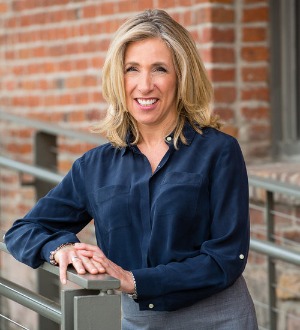During the COVID-19 pandemic, most state governments declared medical cannabis an essential service, although only a handful did so for recreational cannabis. Now, as governments begin to allow more nonessential businesses to reopen, every business owner —cannabis or otherwise—faces the uphill battle of keeping their employees and customers safe.
As planning and preparations ensue, cannabis companies are well-advised to carefully review the Security Standards released in late 2019 by the National Association of Cannabis Businesses.
In my roles as managing partner at Fortis Law Partners and co-founder of Full Velocity Consulting, I have counseled many clients on regulatory compliance in both cannabis and other highly-regulated industries. When asked to help contribute to the shaping and development of the NACB Security Standards, I immediately recognized the importance of having this specific type of industry resource in place. The clear direction these standards provide to business owners and operators are especially beneficial during this unprecedented time.
NACB Security Standards: What and Why?
To date, the NACB has developed a series of six voluntary national standards intended to help cannabis companies demonstrate impeccable business and compliance practices. The Security standards are the fourth in this series and although they were developed pre-COVID, the guidance they offer is particularly timely given the current increased focus on compliance with state and local regulations and need to prepare for what may come next.
The NACB Security Standards cover four main areas:
Employee and visitor access control: This guideline is intended to ensure that only a limited number of employees or visitors have access to certain areas of the business that are not open to the public. It also outlines standard operating procedures and credentialing requirements for all visitors to these limited access areas.
Customer access control: One of the most relevant portions of this standard states that at no point should the ratio of customers to employees in a retail area exceed 10-to-1, and ideally not exceed 5-to-1. Cannabis establishments that were already following this guideline will be accustomed to implementing new social distancing mandates.
The guidance also states that customers who are visibly belligerent or otherwise presenting a safety threat should be denied entry. It mandates that employees should be trained and prepared to deal with denying customers entry in a lawful manner and with concern for the safety of all customers and other individuals in the area.
If a business has already been following this counsel and trained its employees appropriately, they will be more prepared to deal with potentially noncompliant customers than many other retail employees now encountering these types of issues for the first time.
Cash management: Cannabis establishments are advised to conduct initial and annual assessments to identify cash management risks and determine which controls will be implemented to safeguard cash during each transaction, tracking it through the entire operation, from receipt to deposit or disbursal.
Cannabis industries are generally more likely to be subject to scrutiny and audits, so having proper cash management protocols and financial record-keeping in place will serve businesses well, particularly during times of heightened government oversight.
Contaminant testing and claims: Retail cannabis establishments and their employees are responsible for “looping” prevention, which means they should not knowingly transfer cannabis or cannabis products to a customer if it would cause the customer to exceed state-imposed quantity limits.
This standard states that retail cannabis establishments are to implement a looping prevention program, which should include employee training, written procedures to monitor and track customers who transact more than once daily, progressive punishment for employees who fail to adhere to procedures and enforced suspensions or bans for customers who continue looping despite warnings.
The NACB’s National Standards are the gold standard for doing business in the cannabis industry. They offer important guidance not only on Security, but also on Packaging and Labeling, Advertising, Lab Testing & Product Integrity, Infused products and Hemp products. I would advise all cannabis businesses who want to operate at the highest level of ethics and responsibility to review each of these standards carefully and put operating protocols in place to ensure compliance. Restricting access and maintaining appropriate procedures and documentation are even more important now in light of the coronavirus pandemic.
As the legal cannabis industry continues to establish itself in the minds of government and the public as a legitimate business, hurdles will persist due to pre-existing stereotypes, the newness of legalization in many states and numerous government regulations. Self-regulation through adherence to the NACB National Standards is one of the best ways to protect your business and build trust.





















